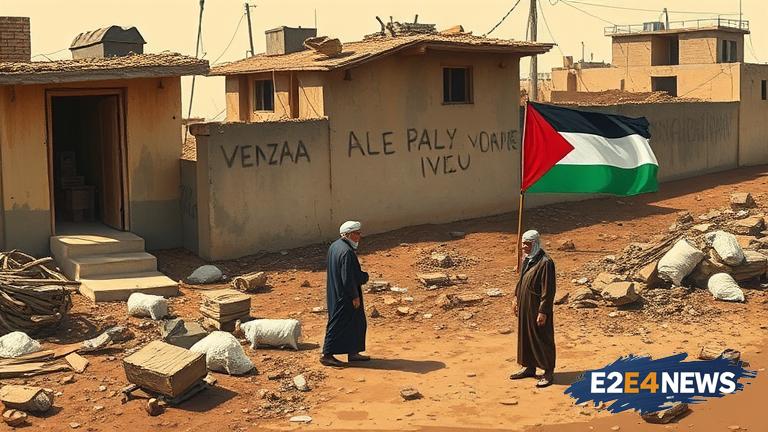The Gaza Strip, a coastal region bordering Egypt and Israel, has been embroiled in a longstanding conflict that has left its population struggling to access basic necessities like food and water. With a blockade imposed by Israel and Egypt, the region’s economy has been severely impacted, leading to widespread poverty and unemployment. The situation has become so dire that many Israelis are now openly discussing the possibility of famine in Gaza. The crisis has been exacerbated by a significant decline in international aid, which has forced many families to rely on meager rations to survive. The effects of the blockade are far-reaching, with many Gazans struggling to access medical care, electricity, and clean water. The Israeli government has maintained that the blockade is necessary to prevent the smuggling of weapons and materials that could be used to build tunnels and other infrastructure by Hamas, the militant group that controls the Gaza Strip. However, many argue that the blockade has had a disproportionate impact on civilians, particularly children and the elderly. As the situation continues to deteriorate, there are growing concerns about the potential for a full-blown humanitarian crisis. The United Nations has warned that the Gaza Strip is on the brink of collapse, with many residents facing severe food insecurity and malnutrition. The crisis has also had a significant impact on the region’s agriculture, with many farmers struggling to access the resources they need to grow crops. The Israeli government has faced criticism for its handling of the crisis, with many accusing it of using the blockade as a form of collective punishment. Despite the challenges, there are still many organizations and individuals working to provide aid and support to those affected by the crisis. These efforts include the provision of food, water, and medical care, as well as initiatives aimed at promoting economic development and stability. However, more needs to be done to address the root causes of the crisis and to ensure that the people of Gaza have access to the resources they need to survive. The international community has a critical role to play in this effort, and it is imperative that governments and organizations around the world take action to address the crisis. This includes providing emergency aid, as well as working to promote a lasting resolution to the conflict. The people of Gaza deserve to live with dignity and to have access to the basic necessities of life, and it is our collective responsibility to ensure that this happens. As the crisis deepens, it is becoming increasingly clear that a new approach is needed, one that prioritizes the needs and rights of civilians and seeks to promote a lasting and just peace. The Israeli government must take steps to ease the blockade and to allow for the free flow of goods and people into and out of the Gaza Strip. The international community must also do more to support the people of Gaza, including by providing emergency aid and working to promote economic development and stability. Ultimately, the crisis in Gaza is a reminder of the need for a comprehensive and lasting resolution to the conflict, one that addresses the root causes of the crisis and promotes a just and lasting peace. The situation in Gaza is a complex and multifaceted one, and it will require a sustained and collective effort to address the crisis and to ensure that the people of Gaza have access to the resources they need to survive. As the world watches, it is imperative that we take action to address the crisis and to promote a lasting and just peace. The people of Gaza are not just statistics or headlines, they are human beings who deserve to live with dignity and to have access to the basic necessities of life. It is our collective responsibility to ensure that this happens, and to work towards a future where the people of Gaza can live in peace and prosperity.
